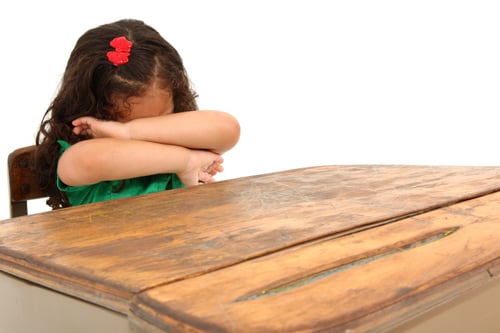

<p><img class=" alignright size-full wp-image-15" style="margin: 5px; float: right;" src="http://schoolnewsnz.fastrackdev.com/wp-content/uploads/2011/10/SN12_-_Education_-_Dyspraxia.jpg" alt="SN12 - Education - Dyspraxia" width="253" height="168" />Dyspraxia is a difficult disorder to diagnose – it affects different people in different ways, at different stages</p>
<p> <!--more--> </p>
<p>of development and to different degrees. Lynn Broadbent, national field worker for the Dyspraxia Support Group of New Zealand, says dyspraxia is a hidden handicap and children with dyspraxia may appear no different from their peers.</p>
<p>&#8220;However dyspraxia can affect their whole life – from waking in the morning to going to bed at night,&#8221; she says.</p>
<p>Sufferers may have poor organisational and sequencing skills, which can affect their ability to get dressed, organise their belongings or work within a set timeframe. They may also have difficulty following instructions and predicting the consequence of their actions.</p>
<p>&#8220;In the classroom, students may have problems with handwriting, following instruction, recalling information, and communicating what they know,&#8221; says Broadbent. &#8220;They may also have sensory issues and find some environments put their systems on overload. They may be very distractible and often do not cope well with changes of routine.&#8221;</p>
<p>Dyspraxia is defined as a neurological based disorder of praxis, or the process involved in the planning of new or purposeful movement.</p>
<p>Despite research no one knows the cause of the disorder, however there is evidence to suggest that there may be a genetic link. Children who have been born prematurely also have a high chance of having dyspraxia.</p>
<p>Statistics from the World Health Organisation (WHO) show that six per cent of the population are affected, however, says Broadbent, the WHO is known to be conservative and it is likely to be around 10 per cent that are actually affected.</p>
<p>Dyspraxia can only be diagnosed by an appropriate professional, such as a GP, speech and language therapist, or paediatrician, and there are different forms of treatment – occupational therapy, sensory integration therapy or special needs tutoring amongst others – depending on the areas of development affected.</p>
<p>So how can teachers&#8217; help a student diagnosed with dyspraxia reach their full potential in the classroom?</p>
<p>Broadbent says the most important thing to remember is to treat each child as an individual. &#8220;Each child&#8217;s needs are different and you will need to adapt your teaching style to the specific requirements of the children in your class.&#8221;</p>
<p>Some children will benefit from having visual aids to help them with the routines in the classroom, she says. And because some may have processing difficulties they will require more time to complete tasks, or they may need instructions in written form as they may have difficulty remembering verbal instructions.</p>
<p>&#8220;Children who experience tracking difficulties, that is following the line of words, may not be able to copy directly from the white board or a book. The teacher may need to write each step in a different colour on the white board, and also break down the instructions into bite size chunks,&#8221; says Broadbent.</p>
<p>&#8220;Classrooms can be very busy places and some children may find them much too stimulating – either visually or auditory – and at times may need a quiet place for time out.&#8221;</p>
<p>Students with dyspraxia may be socially isolated, as the child that finds it hard to follow the rules of the game or is poor at sports can often become a target for bullies.</p>
<p>However, says Broadbent, adaptations to the classroom will often have to be on a case by case basis. &#8220;Children with dyspraxia often try harder than their peers and often finish last or fail the task. Sometimes they can do it today but they may not be able to do the same task tomorrow, and as a result many children suffer from anxiety, which in turn may result in behavioural problems.&#8221;</p>
<p>Broadbent says teachers can help students by educating themselves about dyspraxia because knowledge is power.</p>
<p>It is also important to remember that Dyspraxia is not just a childhood disorder – many adults also struggle to cope. &#8220;However, with early intervention there is a greater possibility that they will become happy well adjusted members of society,&#8221; she says.</p>
<p>For more information and support visit the Dyspraxia Support Group of New Zealand website at <a href="http://www.dyspraxia.org.nz" target="_blank">www.dyspraxia.org.nz.</a></p>

Loneliness and social disconnection negatively impact wellbeing. A new WHO report finds teens feel the…
Should play-based learning be part of the primary curriculum? Researchers asked primary teachers from Australia…
Working with ASSA ABLOY, the school has eliminated potential emergency rekeying, and removed the guesswork…
Lithuania will be providing free AI technology to every secondary school in the country.
Whether it’s sharing important updates, boosting morale, or showcasing student success, digital displays are becoming…
Industrial, legal action and unrest between the education sector and the Ministry of Education rises…
This website uses cookies.